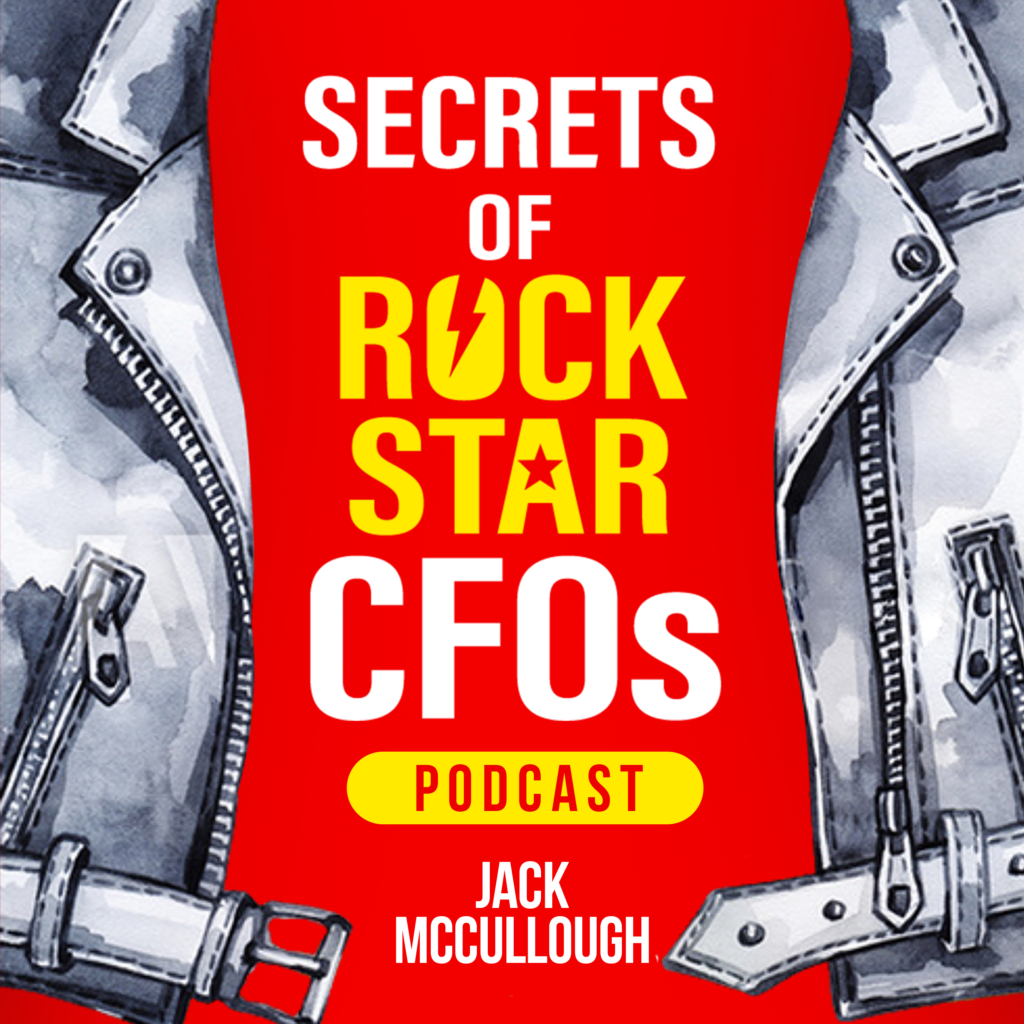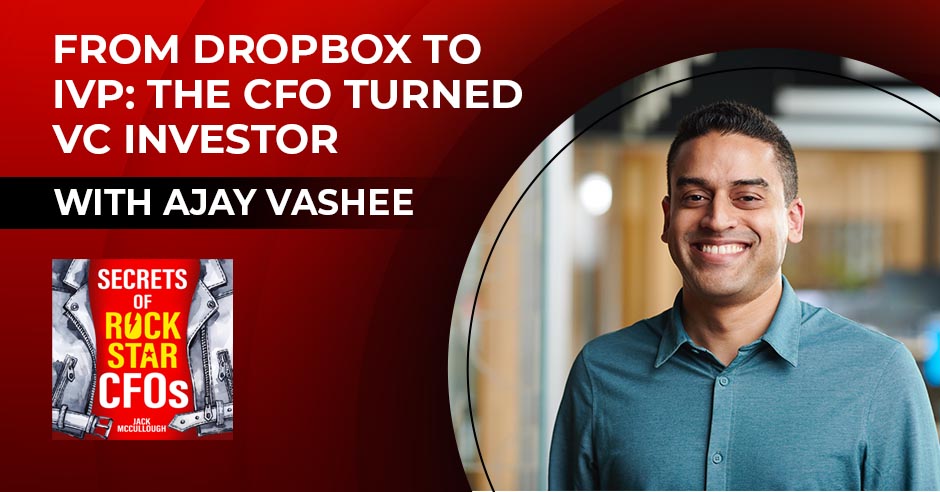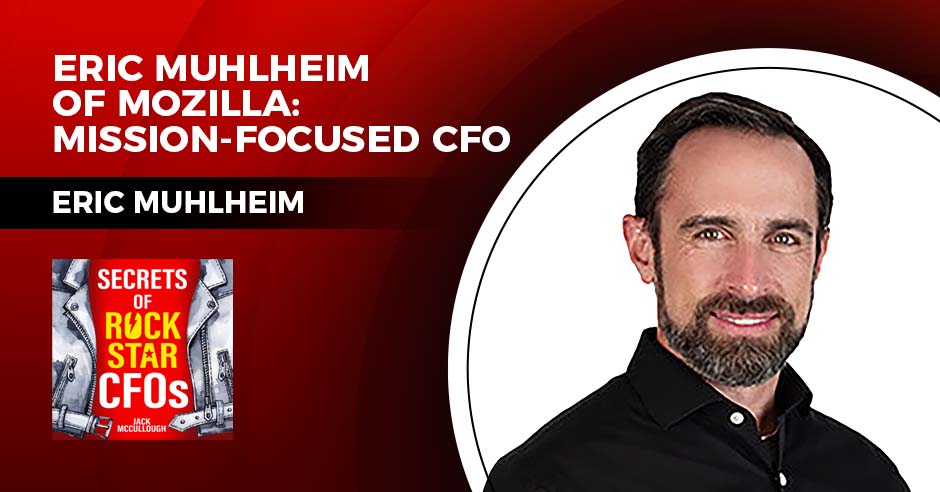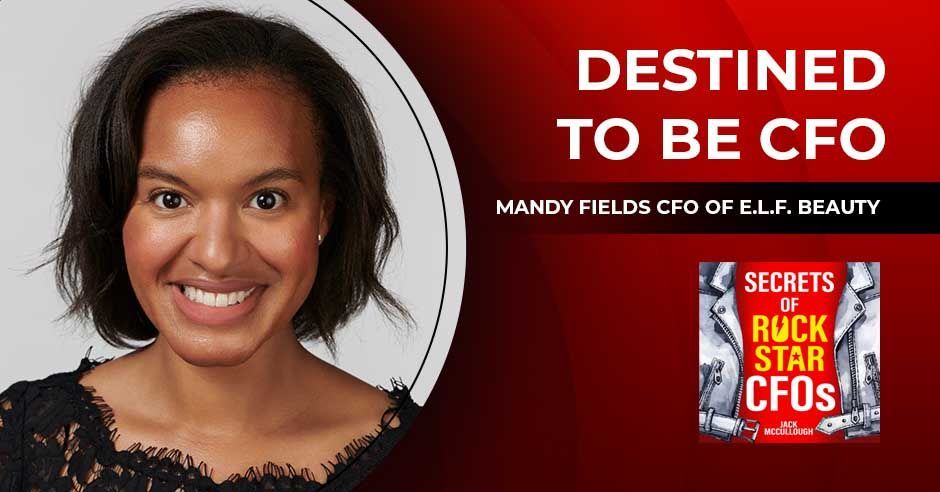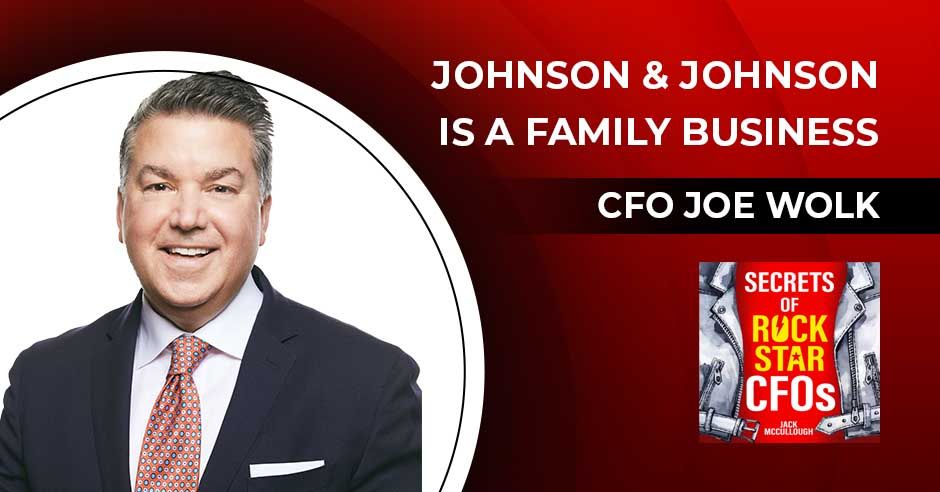A great CFO aligns strategies with the organization’s mission and values, ensuring dynamic growth and impact. For Eric Muhlheim, the CFO of Mozilla, those goals and growth strategies differ from other tech giants. As a non-profit organization committed to fostering an open and free internet, Mozilla, a subsidiary of the Mozilla Foundation, is not driven by maximizing revenue. “The goal is to be a sustainable company and be able to meet our mission goals,” says Muhlheim.
In this episode, Muhlheim spoke with Jack McCullough to explore Mozilla’s pivotal role in the tech industry, how he manages financial growth alongside the core values of the company and the power of storytelling. Listen by clicking below. The Q&A, lightly edited and trimmed for clarity, follows.
—
Listen to the podcast here
We have a great guest, and we’re going to jump right into it. Eric Muhlheim is the CFO of Mozilla, definitely one of the most intriguing companies I’ve come across. Eric, welcome to the show.
Jack, it’s great to be here, and Happy Groundhog Day to you.
I forgot about that. Yes, Happy Groundhog Day. It’s a crime this is an audio experience for most people because you have definitely the coolest background I’ve come across in quite some time. It’s a shame people can’t see it.
I have to thank our marketing department for that.
Anyway, I actually know Mozilla fairly well from having interviewed Roxy before. Actually, she spoke at one of our conferences. It’s an interesting company with a great mission, but would you like to share the 10,000-foot view?
I’d love to. At the Mozilla Corporation, we are, obviously, the company that makes the Firefox web browser. We are in our 25th year right now as a company. The interesting thing about Mozilla is that we are in fact a subsidiary of the Mozilla Foundation, which is a 501(c)(3) non-profit that is devoted to promoting an open and free internet that puts people before profit. We were founded out of the ashes, shall we say, of the Netscape Navigator 25 years ago. The goal of the company at that point was to ensure that the protocols that people used to surf the web would be open source and be available to everybody rather than being something that would be controlled by a single company or an oligopoly that would be setting those standards. That’s something that we still aim ourselves at today.
Netscape is a fascinating company. I’d argue it’s perhaps the most important company within our lifetime that young people haven’t heard of. It’s such a game-changing company, and you’re living on through Mozilla.
That’s right. It was a game-changer back when it started. I was there, you were there. We saw how that changed everything. The important thing about Mozilla is that we made sure that ended up staying in the hands of the people. There were some companies that wanted to make all the protocols, and things that they controlled. The fact that we exist and the fact that we’re backed by a foundation that is not really motivated to have the incentives of returning profits to shareholders and maximizing those profits means that we can continue to focus on that mission, both in the current state of the internet and in future states of the internet.
It’s a terrific mission. I want to chat a little about you. Where did you grow up, Eric?
I grew up in Eugene, Oregon. It was a great place to grow up.
I noticed you went to school at Princeton.
I did. I left the West Coast for the East Coast back in 1987 and found myself in New Jersey, the only other place that didn’t allow you to pump your own gas at the time.
Is that true? You can’t pump your own gas in Oregon and New Jersey, or at least you couldn’t then?
You couldn’t then. Oregon changed it. I think New Jersey, you still can’t.
Is it a strong union state and they just don’t want people taking those jobs away?
There must be a powerful lobby.
That’s just an interesting little quirk of the law. You went to Princeton, and then three years later, you got your MBA at Stanford. You studied Mathematics at Princeton?
I studied Mathematics at Princeton, and then I got into the Math department as my major in my junior year and pretty quickly discovered that academia was not a path that would be fulfilling to me. I beat a hasty retreat to something where I could use that same set of skills, but apply it to something that in a way felt a lot more like a team sport.
One of the things in your career, you spent a lot of your time at Disney, and I’m not familiar with Disney. What do they do?
We do some drawings. I think it’s a version of flip books that you can actually put on the screen. It’s quite fascinating where you put a lot of pictures in sequence, and then they seem to move. It’s amazing.
It doesn’t sound like much of a company though. Certainly, one of the great companies of our lifetime. You had a heck of a run there. I’d love to understand some of the challenges that you worked on and some of the great lessons learned that set you up for Mozilla today.
I spent the first eight years of my time at Disney in the corporate strategy department, which was a department that was founded by Michael Eisner when he came into the company back in the ‘80s. That was a group that really had three functions. First, to run the strategic plan for the company every year. As an academy company and how you do strategic planning, it was a great hotbed for learning that. Secondarily, we were responsible for all of the M&A that the company did. If there was an M&A transaction, that would be sent to our group.
When I was there, I had the opportunity to work on a number of different M&A projects that was an extension of work that I had done prior to business school when I was at Morgan Stanley as an investment banker. Then third, we provided consulting from a different point of view on the state of the business from the operators in that business. It was an interesting time to be in that department because the company had recently purchased Capital Cities/ABC. We were seeing a pretty significant evolution from the state that the company was in when Michael Eisner came into the ‘80s to the company that it became right prior to Bob Iger assuming the CEO role in 2006-ish, I think. We were seeing the evolution of the company and the evolution of how management took place and the balance of the dialogue between the operators and strategic planning, if you will.
It was a great opportunity to be there for about eight years working on the strategic plan with the studios and filmed entertainment group. Did a number of things regarding rationalization of the TV portfolio that we brought in when we acquired Capital Cities/ABC. I spent a ton of time working on questions about how much investment Disney should be making in the filmed entertainment business based upon risk and return characteristics of the different brands that were in his portfolio. Then I spent a lot of time working on intellectual property acquisition, including the acquisition of The Muppets by Disney, which it did finally completed in about 2004 after what had really been a 20-year courting process almost.
Why rush these things, right? 20 years? Did I hear that correctly?
About 20 years, yeah. Jim Henson died and that created some tax issues that put The Muppets in Siberia for a while, and then eventually they came back to their appropriate home.
What a thing he created though, right? The Muppets.
I grew up with them and so I was so happy to work on that transaction. It was really a blast.
That would be a lot of fun. I still crack up every once in a while from the TV show, the two old guys in the audience who would always just be highly critical. Some reason they pop up on YouTube for me once again. I still find it hysterical 30 years later.
It sounds like you’re talking about us right now.
I don’t think we’re cranky. We might be old.
Then I’d spent the next eight years at Disney in the consumer products department. When Bob Iger took over, I took the opportunity to change departments. That was a fascinating opportunity because it moved me from a strategy role to an operational role. I did strategy for about two years with Andy Mooney and the Consumer Products Group and then found myself working with the publishing group on a business plan to take a business where we licensed our characters and content to creators of English Language Learning Curricula for kids.
We worked on a business plan to flip that script and go into that business vertically. I found myself working on a startup for Disney in China called Disney English, where we were actually setting up learning centers where kids were taught English as a supplemental afterschool activity. That was the moment that I moved from being the strategy guy to something more akin to a CFO, if not in name, but actually in function. That was a big turning point in my career. That was an exciting opportunity. Disney gives you all kinds of opportunities. I was able to learn a lot and move in different directions there.
That sounds absolutely fascinating. Did you live in China during this experience?
Yeah, I lived in Shanghai from 2008 to 2010.
I know it’s difficult to learn the Chinese language as an adult, but did you learn to speak Chinese or perhaps you did beforehand?
I learned what I like to call taxi cab Chinese. I could tell people to turn left, turn right, go straight ahead or stop. That was enough to get me home every night.
There you go. Working at Disney, and you mentioned a couple of the CEOs, and to me, Disney CEOs are just iconic. They’re in that category of Bill Gates, Jack Welch and some others. Just famous people who shaped the world around us. Did you have any important mentors along the way? I would think that would be a big thing around Disney of having access to some great thinkers.
Yeah, there’s a ton you can learn. I really had the good fortune of sitting where I did in the strategy department and then moving into a role in consumer products to see a number of different leaders. When I was in the corporate strategy department, I worked for Peter Murphy, who is the chief strategy officer of the company. I learned a ton from him. When I was in consumer products, I worked for Andy Mooney, who had long careers at Nike and then Disney. I believe he’s at Fender now following one of his passions for electric guitars. Then I worked with Bob Chapek a bit. I ran across a number of leaders. I also had a significant amount of contact with Bob Iger when I was in those roles.
Every leader brings something different to the table. You learn a lot through osmosis and you get the opportunity to say, “What are great things that they do? Attention to detail, attention to communication, attention to making relationships.” You get to say, “What do these things work for me as a human being? What parts of these leadership styles don’t work for me? What are things that I don’t want to do that may work for them, but it doesn’t work for me because of the way that I’m constituted and the things that I want to do?” In flowing around the company in several different roles and meeting a lot of different executives, I was able to pick up a lot of different things that I was really grateful for.
I’m curious, you’re working for Mozilla today and two great companies, but very, very different, at least from my perspective. What are some of the critical things you learned at Disney that you still bring with you day-to-day to Mozilla?
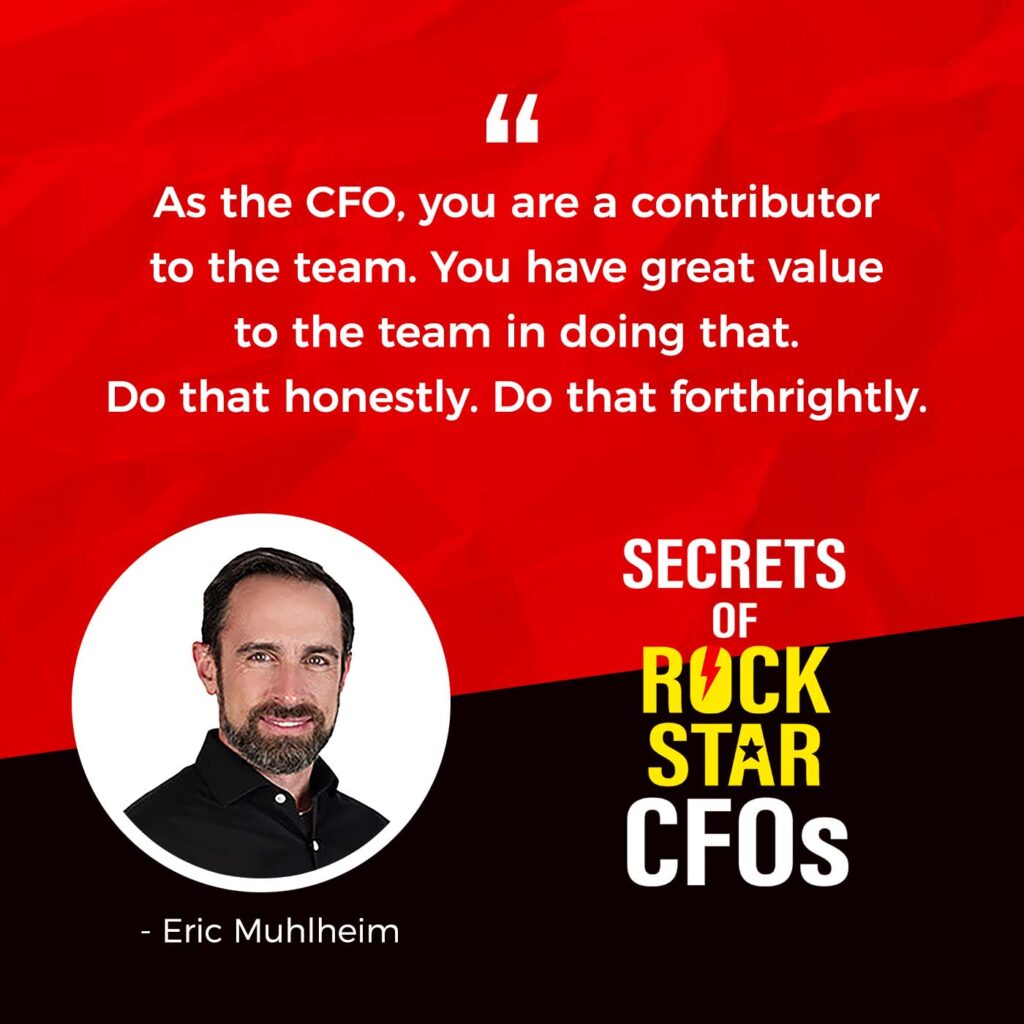
Disney, in the way that we communicated inside the company, there was an emphasis on being crisp and logical and being able to jump to the conclusion of an argument and then back it up with facts. It’s called the Pyramid Principle. I’m sure that a lot of people who are listening to this have heard of that. That got drilled into me from a very early age. That level of precision of communication and thought is something that I find incredibly valuable as a CFO working for Mozilla or any place else. Part of that is that people don’t have a lot of time. It’s better to come at them with the answer and then support that with details. Also, it really allows you to have an interactive conversation and take the conversation where you need to have it.
I view my role as a CFO as being one where I’m an advisor, and to some extent, I’m a storyteller who happens to have a facility with the numbers and the facts. I use those pieces to build up the story that I want to tell to try to take people to the conclusion that I think is important. That storytelling is really the most important part of the job. Being able to have facility with numbers is the way that you do it. At the end of the day, if you can’t tell the story behind it, then it’s just a big pile of numbers.
You’re absolutely right. In fact, I issued these infographics, white papers, and one of them was the CFO’s role as a storyteller. For some, it’s a comfortable thing, an uncomfortable thing for them to embrace. Storytelling sounds like fiction to some people, but then they get it. It ended up being one of the most popular white papers that I’ve ever issued is just, how do you become a storyteller? If you’re just giving data, the only people who are going to pay attention to it are CPAs and other accountants and that sort of stuff. You’ve got to make the numbers sing a little bit, as they say.
Ironically, I think some of that does come from being at Disney where the entire purpose of Disney is to tell stories and everything that it does to tell stories. If you work that into your DNA, then that’s just the angle that you come at things from, I totally agree with you.
Every financial person should spend six months at Disney. It’s going to be the best place on the planet for storytelling. I’d love to chat about Mozilla a little bit. The top of this, you mentioned that you have a foundation and then a for-profit corporation. I’m curious, what’s that like? I’ve just never spoken to anybody in that situation before.
It’s fascinating. One place where people can go to learn more about this is to look at the State of Mozilla Report, which we published on the web. That gives you a really good snapshot of what we’re all about and why we exist. Like I said previously, the mission of the company as a whole is to ensure that we have a free and open internet, and we put people above profits. What that means for me, as the CFO of a subsidiary of this non-profit that is in fact a for-profit, is that I have to balance the perspectives an awful lot.
When I came in and started my relationship with our CEO, Mitchell Baker, I had to turn my way of thinking a little bit. With EBITDA—which is a phrase that a lot of people here weren’t even familiar with, that I’ve had to drum into people’s heads as our measure of operating income—the goal is not to maximize that. The goal is to be a sustainable company and be able to meet our mission goals. Then growth is really in the service of increasing the ambit of the mission-based goals that we can drive, but we have to turn a profit. That’s the funny thing. When people think non-profit, they think, “You don’t need to turn a profit,” and the answer is no. The role of a CFO here is not dissimilar from the role of a CFO in any other organization where an important part of your job is keeping an eye on the pocketbook and making sure that you have the resources to do what you need to do to get to the next stage.
In this case, we have the luxury of not having to report on a quarterly basis, not having shareholders who are determined to flip the company in some specified period of time and want to maximize your EBITDA so they can do it at the right multiple. Here, it’s really about, what are we generating? Are we able to do the things that we’re doing on an ongoing basis? Does that feedback into the higher mission of the not-for-profit company?
You’ve got a fascinating and really challenging environment to say the least.
It’s very, very different. In a way, it resonates with who I am. It’s not about leaving every single dollar on the table. It’s about doing something that is really interesting, and for the good of humanity while using business as a tool in order to bring that off.
What could be more noble than that? I know Mozilla is committed to open source. To me, as somebody who’s online quite a bit, what I love is checking out privacy. How does this influence you with some of the strategic decisions you make in your role as CFO of the company?
That’s interesting to talk about because we’re constantly thinking about our browsers. Our browser, one of the things that we don’t do is we don’t collect the same amount of data on people that other browsers do. We make decisions about isolating processes between different tabs that you’re in, not using cookies, not gathering information that doesn’t maximize our revenue in every single case. We have at times when I’ve been here, sat here with decisions. The decision really is how much of a revenue tax are we willing to put on ourselves to provide certain features or take certain actions that we believe are for the good of folks who would use our properties.
One thing that we’ve been doing over the course of the past several years and a very important initiative of Mozilla is diversification of our revenue. We have three revenue models that come into the company. We have Search, which we gain through search partnerships with folks like Google and Bing and DuckDuckGo, Ecosia, Qwant and other places. We have display advertising, which is primarily shown on the new tab of our browser. Then we have some subscription revenues for products like Mozilla VPN.
In the display advertising side on our new tab page, we are providing a product to advertisers that doesn’t provide the same amount of tracking that an ad on Facebook or someplace else would, because we don’t believe in that kind of tracking. We believe that it’s a business that can be strong and solid. We believe that there are advertisers who are going to align at the right price with the product that we’re offering there. There are ways that we could maximize that revenue even more, which we’re just not going to because that’s not who we are.
It’s your strong point, at least for me, why I use it. I feel a lot safer using Mozilla than I do any other browser. I suspect I’m probably not the only one who thinks that way.
At the end of the day, one of the reasons to do that is because the more people that are using Firefox, it means that the protocols that we use to surf the web are protocols that companies that create websites and web services and the like are going to have to support. That means that those protocols are also in the hands of a non-profit foundation, as opposed to a profit-seeking company, which is in the long run for the good of everybody.
I know you have a reputation of engaged and passionate users and contributors. I’ve even heard your followers compared to fans for football teams and stuff like that. What are some of the things you do, the initiatives or partnerships to remain involved with that community? Your users almost feel a sense of ownership of the company, it seems to me. How do you continually strengthen that community?
We have some initiatives that are going on, particularly in our innovation area. I’ll give a shout-out to Imo Udom, who runs a lot of these programs for us. As an example of places where we’re doing that, we are getting more heavily involved in artificial intelligence. Last year, we ran the Open AI Challenge, where we brought together a lot of people from a lot of different walks of the AI community, academics, activists, people who were running small companies doing interesting things in AI, to talk about the future of AI and talk about the future of AI in an open way.
We’re in a phase right now with artificial intelligence, which is not dissimilar from where we were with web protocol 25 years ago, where it’s new, it’s interesting. A lot of people are doing fascinating things with it. There is also the risk that this is something that is not open, something that ends up being owned by large companies. Our entire perspective on AI is very similar to our perspective on the web 25 years ago, where the things that we’re focused on have to be open. We have to have things that people can use. There has to be accessibility for small companies, and individual users to be able to use AI. There has to be accountability.
Too often, people say, “We’ll let AI run this and AI will come out with an answer. Because the machine has given us the answer, the answer is okay.” I think we’re seeing all of the places where this seems showing that right now, where AI has to be auditable, it has to be transparent, you have to understand why it’s coming up with the answers that it’s coming up with. Those are all things that we stand for inside Mozilla through our innovation. It’s places that we’re talking about as part of the foundation. Then the foundation has also set up a sister company to Mozilla Corporation called Mozilla AI that is busy working on open-source protocols for AI for precisely that end.
My next question was going to be about digitalization and digital strategies. I’m curious, one of the areas which CFOs can really make a huge impact is to a thoughtful digital strategy. I am curious, you touched upon a little bit, but what are some of the digitalization strategies that you’ve adopted, not only for the company, generally speaking, but within its finance function?
Within the finance function, a lot of our biggest priority has been to build an infrastructure for the company so we can be as effective as possible in diversifying Mozilla’s revenue streams and activities. We have an interesting problem at Mozilla in that when we came out of the gate 25 years ago, the very first thing that we did hit the bullseye and was an enormous success. This is like the resource curse. Once that happens to you, it’s not a way to build very good habits as a company.
What we’ve been doing over the course of the past couple of years while I’ve been here has been undergoing a lot of transformation of our infrastructure so that we can more effectively allow this company to engage in new initiatives, invest in the right things at the right times, at the right levels and then assess the outcomes and then lather, rinse, and repeat as we try to grow. There’s a digitalization part of this strategy, which is changing systems.
We moved from our existing ERP to NetSuite, and that allowed us to have better, more fine-grained reporting on what we were doing. We used that to restack our chart of accounts. Then we were putting in a new budgeting system, and we’re using that to enable more profit by profit by product reporting inside the company so that we can actually measure the specific investment that we’re putting into new initiatives and then be able to track investments against outcomes. It’s not just digital here, though. This is all about enablement. What we’ve also had to do is we’ve had to work with all of our partners to change the culture and operations of the company because the system is only there to enable the things that you do as an organization.
We’ve had to work pretty closely with all of our partners in the marketing department and the product department and the like to put the right systems and organizations in place for us to be able to report on this information. I see this as us going back to that storytelling conversation that we had previously, having better information to be able to tell the story about the different things that we’re doing. I truly believe that this is transformative for the company because it’s going to allow us to make decisions in a more agile fashion with better information. In a way, when you’re innovating, you’re going to fail a lot. It’s going to allow us to fail quicker. The quicker you fail, the quicker you become successful.
I want to touch on earlier, you mentioned the CEO and the relationship between the CFO and the CEO. It’s such a strategic partnership. I’m curious how the two of you work together, what that dynamic is like, and how you support each other in leading this company.
Mitchell is a fascinating person. Mitch Baker was the Founder of Mozilla, the spiritual core of Mozilla, both the CEO of the company and the chairperson of the foundation. I came to Mozilla largely because I was recruited. When I met her, she was such an interesting mind. In our relationship, I think we both have aspects where we complement each other well.
We talk a couple of times a week and then Slack constantly. Part of it is like creating space for the minds to work. Me understanding her perspective as the person who really holds the will, the ethos of the company and the spirit of the company, but also knowing that she wants the company to change and diversify, and holding these two things at the same time, what is the core of Mozilla? Where do we want to take Mozilla and evolve it to be as successful and as much of a contributor to the culture of the internet in its second 25 years as it was in the first 25? Then giving space for me to basically share what I understand from the CFO perspective, from having worked at places like Disney, from having worked in the AdTech business. There’s a give and take, and there’s always an a-ha that takes place. We take the time and the space to be able to examine those things. Really that gives us the opportunity to make really good decisions. It’s a relationship that I treasure. As you said, it’s an important relationship and in some ways, it’s a very intimate relationship.
It’s interesting that there was a time when nobody necessarily thought that was the most critical relationship. If you support each other, you challenge each other, it’s so critical to leading the company. It sounds like you’ve got almost a perfect relationship with the CEO.
I find myself very fortunate. It’s one of the things that makes me so happy to be here.
One thing, I was looking at your LinkedIn profile, and you’ve had a fascinating career, but of all things that jumped out at me and intrigued me, you’re on the board chair of the Independent Shakespeare Company, which is a first for my guest. I’d love to hear a little bit about that.
I have a math background and everything, but I’ve always been a bit of a literature, art and music nerd, so I like to do things that please that part of me. Shakespeare was something I was introduced to in college. When I came out of here to LA years ago, we went to Shakespeare in the Park here in Griffith Park in Los Angeles for free. It was an amazing experience. The Independent Shakespeare Company is a company that is devoted to putting a cast on stage that reflects the diversity of Los Angeles, and has it played to people who represent the diversity of Los Angeles. It’s just taking place in essentially more like Central East LA. You bring in a wide range of people from different walks of life, about 40 percent of whom really this is their only exposure to theater. They make Shakespeare and all of that incredibly complicated language totally accessible to that audience. Frankly, let’s be clear, Shakespeare is pretty dirty too.
I don’t know that I appreciated that as a kid, but yes.
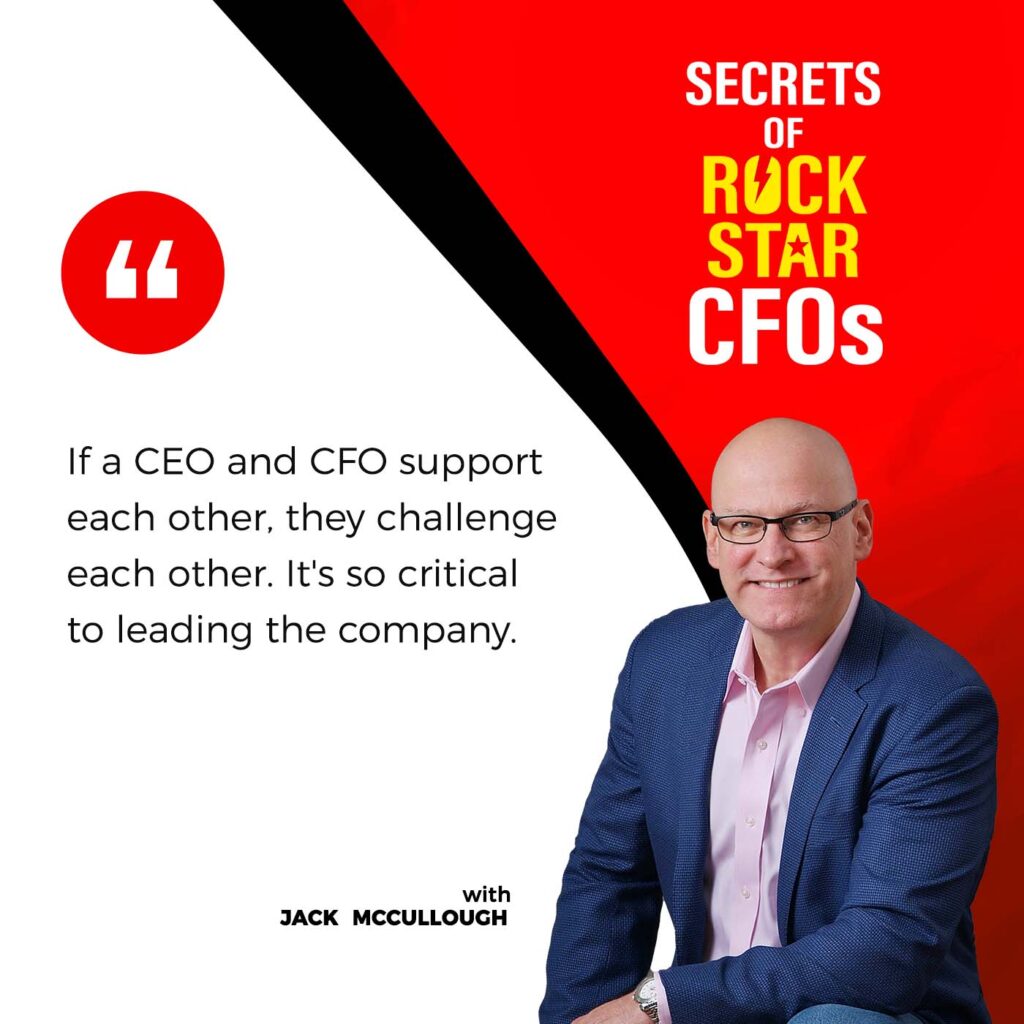
Both of those things are put on stage there. It’s a community resource for LA. It’s a gem of the LA experience. At the time that I got interested in the company, it was also the time for me to start giving something back to the community. I met some people who worked on the board and they said, “Do you want to join the board?” I said, “Sure.” I’ve been involved with them for a long time and I treasure it.
As a CFO speaking, if you compare this to the New York Shakespeare Festival and San Francisco Shakespeare Festival, we are more efficient on a metrics basis, dollar-for-dollar of translating money into audience members than any of these other Shakespeare festivals. I’m very pleased about that. We could use some more money, of course.
I never heard anyone describe Shakespeare in terms of its efficiency and financial models.
The return on investment is strong for the Independent Shakespeare Company of LA.
You are an interesting man, Eric. I bet you’re the only mathematician with an MBA who’s on the board of this company. Am I right?
It’s not a very big board, and that’s probably true.
You have a lot going on. You’re working with this great company and wonderful business, and you’re on the board. One of the big challenges, you might remember this phrase, is the whole work-life balance. What’s your philosophy on that? You seem like you’re pulling it off very effectively.
My philosophy is you need to have balance. Yes, we work a lot but you need to find ways to please the other parts of your brain. It’s very stressful focusing on the budget, focusing on how we meet the board’s expectations for what we do. How do we work as a team inside Mozilla to meet our shared objectives? Frankly for me, one of the things that really pleases me is making things. I’ve always enjoyed making things. There’s that hidden artist type. I’m not terribly artistic, but if I can put something together and look at it and say, “Yeah, this is something that pleases me,” then I end up pretty happy.
When you say building, do you mean like with your hands?
Home brewing is the thing that has been my passion really ever since the pandemic started—I had threatened to get into home brewing for a number of years. When the pandemic came and I found myself at home with a lot of spare time on my hands, I finally said, “I really need to have a pretty time-consuming hobby,” and home brewing is that. For the past four years or so, I’ve been making my own beer and I get a tremendous amount of joy out of that because it’s not just making the beer itself. It’s turned into this entire art project for me where I want to create a beer. It’s like, “What is the beer called? What is its name?” which is usually some reference to something in my life that’s very obscure.
It has to have a graphic associated with it. I’m not an artist myself, but you can go to Fiverr and you can give an artist a spec on how to create a piece of art that is affiliated with that beer. Then there are places to write text on the label. I write a little bit of text that amuses me and maybe is, if you will, sort of a 50 to 60-word poem. Then of course the beer has to have a theme song. You have to figure out what song from your vast music library sits in opposition to that beer in an interesting way. Then you have an entire art project which you can give to somebody, you can drink, you can talk about it. I also like put it up on the web and have a homepage for all my home brewing exercises to tell stories about it. It turns into a whole thing for me.
That’s fantastic. I noticed you do list it on your LinkedIn profile.
Yeah, as a goof.
I think it’s terrific that you can include something like that. Do you do it for joy or do you actually market the beer that you produce?
I do it for joy. I actually have brewed some beers for the Shakespeare Company in conjunction with their Gallows to riff on ideas that they have as well as allow them to auction them off. I have also discovered that people like it when you give them free beer, because I can’t drink all of it myself. I’ve got to give it away.
What’s some advice you can give to the next generation of CFOs that would help them achieve some of the successes that you’ve achieved in your career?
My advice is it’s incredibly important to focus on the teamwork aspect of what you do. There’s some reputation that I saw in finance departments when I started my career, where finance departments were, to some extent, the enforcers. To a very large extent, because we sit on a lot of information that other people don’t have access to or don’t have the capability to understand, sometimes finance departments were known for using that as a weapon or a source of advantage. That’s been something that I decided pretty early on in my career, that’s not something that I wanted to do. My own ethos was very much about transparency and storytelling.
Having the conviction of my own perspective on the information and having the conviction to be able to tell that story, to share that with the team, to explain to them why I have my point of view, and also fully acknowledge that it is a point of view that comes from my own place. I know other people might have points of view. There’s a tremendous amount of ambiguity in the CFO job as well. None of us really know what’s going to happen in the future. We can use past data to forecast what we’re doing in the future, but that’s not always the right direction to go. Companies run with both money, but they also run with people. As the CFO, you are a contributor to the team, you have great value to the team in doing that. Do that honestly, do that forthrightly and use your superpowers for good as a member of the team, but hold it lightly too because it is a team sport.
I think that’s some great advice. You mentioned you can’t predict the future from the past. I had a boss, he had the expression of driving while looking in the rearview mirror. It’s not how you forge the future by looking at what happened in the past. Learn the lessons from it and see some trends.
Those trends are important.
You can influence the future, you cannot influence the past. Eric, this has been a great conversation. I know you’re a busy guy, so I certainly appreciate your time. I want to give you the final word if there’s anything you’d like to share with my audience.
I think we covered a lot of ground. I guess the final word would be, everyone, please go on to the internet and go to Mozilla.com, download the Firefox browser and use that browser because the browser is going to be better for you and you’re also fighting for a free and open internet by using our browser.
Thanks, Eric.
Thank you, Jack. Great to talk to you.

